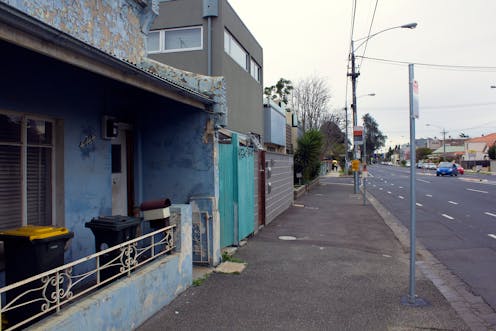Chilly house? Mouldy rooms? Here's how to improve low-income renters’ access to decent housing
- Written by Edgar Liu, Senior Research Fellow at City Futures Research Centre, UNSW
 Too many Australians struggle to get their housing maintained and problems fixed.Trevor Charles Graham/Shutterstock
Too many Australians struggle to get their housing maintained and problems fixed.Trevor Charles Graham/ShutterstockPeople’s quality of life, their health and their comfort can suffer when living in poor-quality housing. It can also impose high ongoing costs of maintenance, repairs, heating and cooling. And these problems are more likely to...





